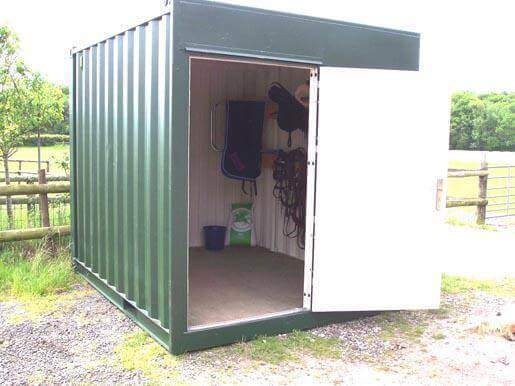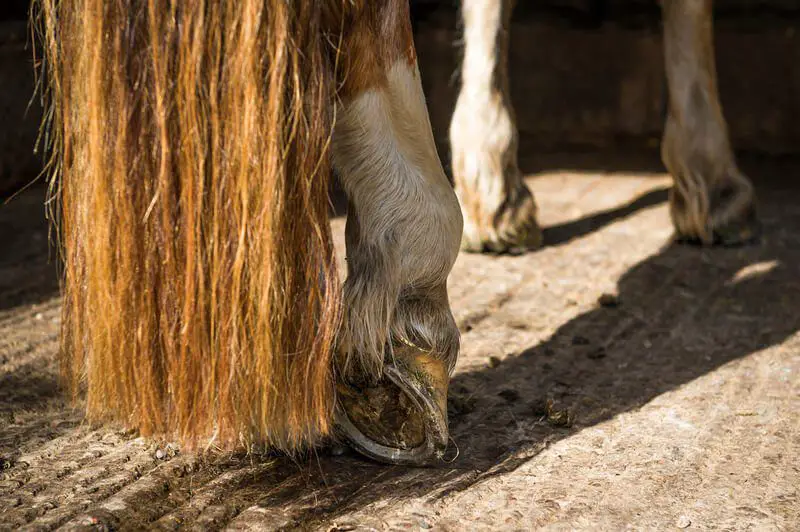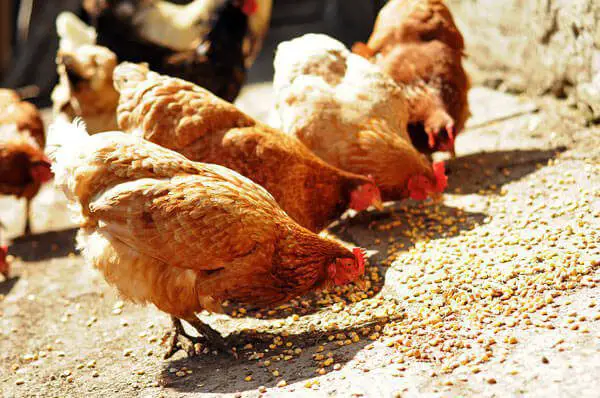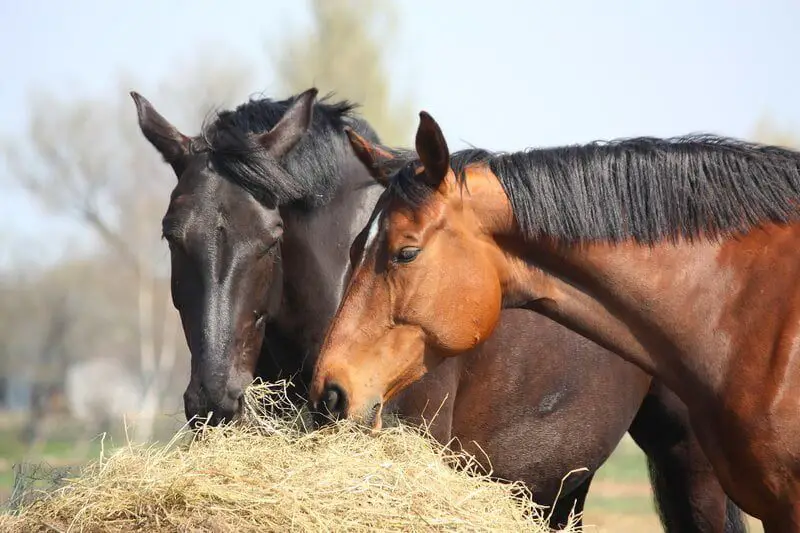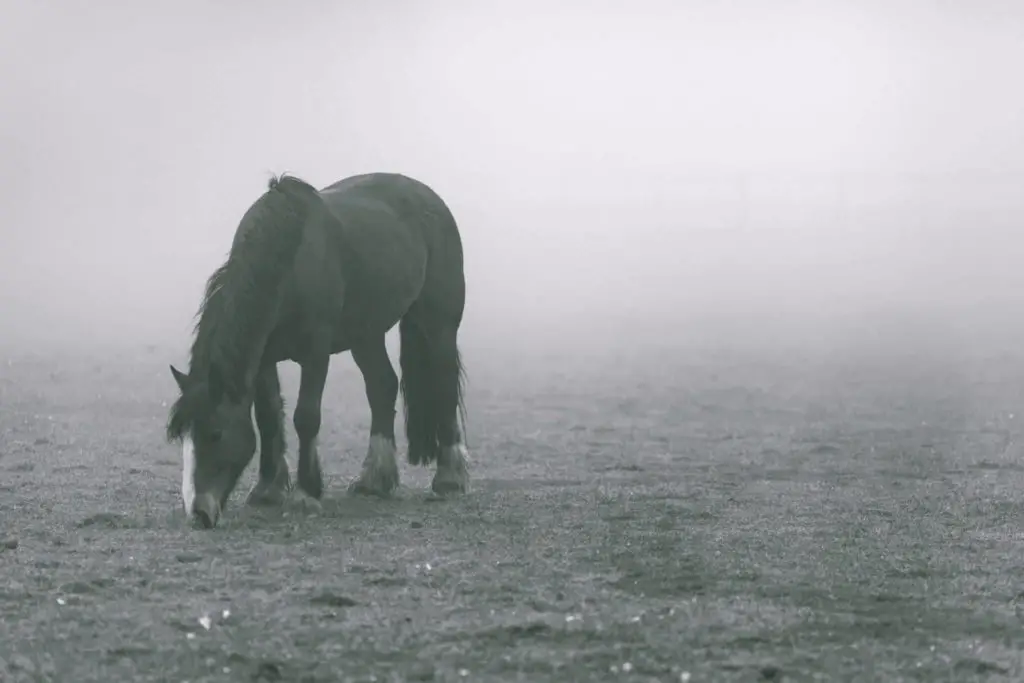I was feeding my horses this morning when I realized that one of them had gotten into the chicken feed- this is a common call we get as Equine Veterinarians. If your horse ate chicken feed, it is important to take action immediately. Chicken feed can be dangerous for horses and can cause serious health problems if left untreated. Symptoms of chicken feed poisoning in horses can include colic, diarrhea, and lethargy. If you notice any of these symptoms, it is important to call your vet immediately. Chicken food does not get processed the same way horse feed does and the chicken digestive tract can grind food and tolerate mold and mycotoxins far better than horses can. Often chicken food is completely grain also, which can produce colic, diarrhea, and laminitis in horses. But alternatively chicken can eat horse feed and if you want to read more about it here is a good article on It. Assessing the Situation When you find out that your horse has eaten chicken feed, it’s essential to assess the situation carefully. As a horse owner, it’s natural to be concerned about your horse’s well-being. Here are some things to consider: What to Look For First, check the label on the chicken feed to see what ingredients are listed. If the feed contains any harmful substances, it’s essential to take immediate action. Next, assess the amount of chicken feed your horse has eaten. If it’s a small amount, your horse may be okay, but if it’s a large amount, it could be dangerous. Ring your veterinarian immediately if you think it has consumed more than 2-5 kgs for an adult full-sized horse. Symptoms of Chicken Feed Poisoning Watch your horse closely for any signs of poisoning. Symptoms of chicken feed poisoning can include: If you notice any of these symptoms, it’s essential to call a veterinarian immediately. Treatment Options After discovering that your horse ate chicken feed here are the treatment options: Home Remedies If your horse only ate a small amount of chicken feed, you can try some home remedies. First, remove any remaining chicken feed from your horse’s reach. Then, offer your horse plenty of fresh water to help flush out any toxins. You can also offer hay or grass to help dilute the chicken feed in your horse’s stomach. Keep an eye on your horse for any signs of discomfort or illness. When to Call a Vet If your horse ate a large amount of chicken feed or shows any signs of illness or discomfort, it’s important to call a vet immediately. Signs of illness can include colic, diarrhea, lethargy, or loss of appetite. The vet may recommend further treatment, such as administering activated charcoal or intravenous fluids. What to Expect from a Vet Visit During a vet visit, the vet will examine your horse and ask about the amount of chicken feed ingested. The vet may take blood samples or perform other tests to check for any signs of toxicity or illness. Treatment options may include administering activated charcoal to absorb toxins, administering intravenous fluids to prevent dehydration, or providing medication to alleviate symptoms. The vet may also recommend monitoring your horse’s condition for several days after the incident to ensure a full recovery. They may also suggest you keep an eye on your horses feet and their temperature. If the feet become hot the treatment is to give them foot ice baths for 15 minutes every hour for sometimes 48 hours to prevent laminitis from occuring. Preventing Chicken Feed Poisoning Storing Chicken Feed As a responsible horse owner, I know that proper storage of chicken feed is crucial to prevent my horse from eating it. I store my chicken feed in a secure, airtight container that is labeled clearly. This helps to prevent accidental ingestion of chicken feed by my horse. I make sure to always keep the container out of reach of my horse and other animals. Alternative Feeding Options If you are concerned about your horse accidentally ingesting chicken feed, you can consider alternative feeding locations or different food for your poultry. There are many different types of feed available that are specifically formulated and safer for horses if they accidentally eat some. You can talk to your veterinarian or a qualified equine nutritionist to determine the best feeding options for your horse. By following these simple steps, you can help ensure that your horse does not accidentally ingest chicken feed or other harmful substances. Taking these precautions can help keep your horse healthy and happy. Read More About Horse Feeding Topics

